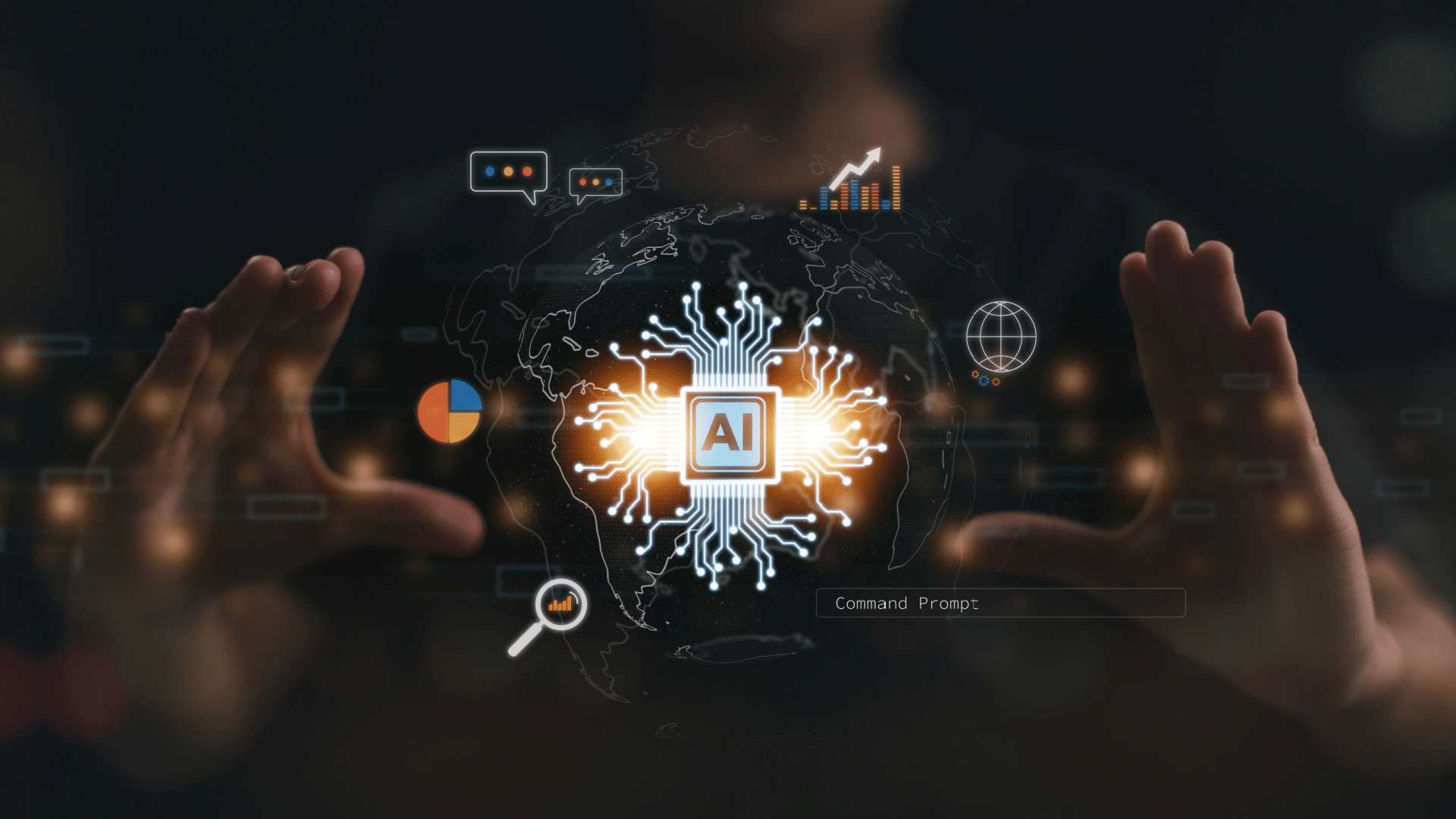The realm of online interactions is undergoing a significant transformation due to artificial intelligence (AI), rendering outdated SEO strategies obsolete. It is imperative to reassess our approaches thoroughly, striking a harmonious balance between human creativity and AI efficacy to remain relevant, given the extensive use of AI by search engines to anticipate user intentions.
As AI revolutionizes the digital landscape, it is essential to explore the innovations, opportunities, and challenges it presents.
Prioritizing Objectives over Keywords in Search Evolution
The emphasis on understanding consumer intent has superseded the practice of stuffing content with keywords in the past.
Search engines have evolved to grasp context and intent in their environment. This paradigm shift necessitates a strategic shift in SEO methodologies, giving more weight to relevance and creativity over mere keyword density.
Modern SEO not only considers keyword frequency but also aligns with user objectives and pain points. By incorporating elements like location-based services and personalized recommendations, searches are transformed into dynamic interactions between consumers and your content.
Embracing Conceptual Search
The integration of semantic search requires a blend of data analysis and empathetic comprehension. The primary objective of this approach is to provide relevant and valuable insights while upholding E-A-T (Expertise, Authoritativeness, Trustworthiness) standards.
While keyword research remains crucial in the contemporary landscape, it serves as part of a broader strategy. In a world inundated with information, the focus is on building meaningful connections and standing out.
Consider Google’s BERT engine, which leverages natural language processing to discern the true intent behind a search query. This signifies a shift from simple keyword matching to predictive, context-aware results.
Essentially, AI anticipates our needs, often preempting them before they are articulated, rather than merely refining search results.
AI not only comprehends user intent but also enables search engine personalization.
By analyzing historical user data such as location and search history, AI predicts the future preferences of search engine users.
The Revolutionary Impact of AI on SEO
Understanding AI is pivotal for content creators as it plays a pivotal role in online marketing.
It involves leveraging machine learning algorithms to analyze data and predict relevant information for search queries.
Marketers need to grasp the influence of AI to remain competitive, as search engines like Google and Bing utilize AI to enhance result accuracy.
Harnessing AI for Innovative Content Strategies
AI tools offer more than just enhancements to existing strategies.
They facilitate marketing through advanced analytics and trend identification. These tools provide insights on site engagement and click-through rates, among other aspects of strategy performance.
AI also offers recommendations for continual enhancement based on user behavior, transforming content effectiveness by identifying new opportunities.
The Future Landscape of the Human-Machine Harmony
Despite AI advancements, human storytelling remains indispensable.
Concepts like AIO (Artificial Intelligence Optimization) and the C.R.A.F.T. platform, which blend machine learning with human intelligence to craft compelling, search engine-friendly content, become imperative at this juncture.
Artificial Intelligence (AI) in Content Creation
The integration of AI in content creation heralds a new era, introducing the era of AIO creators.
AI is employed to generate articles, insert keywords, and align with search engine result pages. However, AI alone is insufficient. Subsequently, a human writer with AIO training takes charge, refining AI-generated content.
These streamlined pieces attract visitors and cater to the demands of modern search engines. They maintain a distinct voice and brand identity.
An intriguing aspect of this model transcends mere quantity—it pertains to credibility and reliability, crucial for a robust E-A-T content strategy.
Marketers embracing AIO in their strategies are setting benchmarks rather than trailing behind.
The Synergy of Artificial and Human SEO Experience
While AI enhances efficiency, the nuanced touch of human writing adds depth and appeal to content. In this collaborative process, AI aids in initial drafts, with human expertise refining the final output.
A cautious approach is necessary when crafting SEO-friendly content. AI lays a solid foundation, but human ingenuity is what distinguishes exceptional content.
Decoding C.R.A.F.T.: Crafting Effective Content
To navigate the swiftly evolving digital landscape, particularly when working with AI-generated content, the C.R.A.F.T. platform was devised.
AI-generated writing, in its current state, lacks the personal touch, consumer insights, and human experience.
This is where C.R.A.F.T. comes into play. It enables writers to infuse these essential human elements into AI-generated content, ensuring that both the creator and the audience are reflected in it.
Here’s how it works.
Streamlining Content
C.R.A.F.T. emphasizes concise and impactful writing. In today’s information-rich world, eliminating unnecessary words is crucial.
This strategy aligns with Google’s Search Essentials, previously known as Webmaster Guidelines, which prioritize user-generated content.
Editing, Evaluation, and Enhancement
Transform good content into exceptional discourse. Enhance grammar and skillfully integrate keywords to strike a balance between SEO requirements and reader engagement.
Visual Elements: Media, Graphics, and Images
Visual aids are indispensable. They complement the text and aid in elucidating complex concepts. Clear visuals and alt tags enhance user experience and improve discoverability, thereby boosting SEO.
Fact-Checking
Establishing expertise and debunking misinformation is accomplished through rigorous fact-checking. Factual accuracy is paramount for creators, aligning with Google’s E-A-T guidelines.
Building Trust
To foster trust with your audience, incorporating personal narratives and credible references is essential.
Stay updated with the latest insights that research organizations rely on.
The Role of Relational AI in Search Results
Generative AI is redefining content quality standards. This advancement challenges traditional SEO practices as algorithms can now generate and evaluate content in unprecedented ways.
Elevating Content Quality Across the Board
In this competitive landscape, a premium is placed on higher quality standards.
To meet the demands of relational AI, Google’s evolving algorithms prioritize content that is relevant, original, and valuable.
This shift underscores the importance of thorough fact-checking and maintaining integrity in content creation.
Enhancing User Experience with AI
Conceptual AI impacts more than just search rankings. It influences metrics related to user engagement, brand differentiation, and storytelling.
The narrative surrounding information enhances user experience, while credible links within the content bolster credibility.
Despite the cutting-edge features of AI, the indispensable human element in content creation cannot be overlooked.
The fusion of technological prowess with human touch is irreplaceable in crafting compelling narratives.
Adapting to AI-Driven Search Engine Marketing
With the rapid evolution of AI, the future of search engine marketing is undergoing a transformation. Businesses must stay abreast of these changes and prepare for the impending shift. Here are key strategies:
Stay Informed about AI Developments: Keep abreast of the latest advancements in AI. Engage in specialized discussions on AI innovations and trends and follow industry publications.
- Understand the Opportunities and Challenges of AI: While relational AI offers significant benefits, it also poses challenges such as misinformation. By 2027, Gartner predicts that up to 80% of businesses will require dedicated teams to combat AI-generated misinformation.
- Address Copyright Concerns: Copyright issues are critical in the realm of conceptual AI. Navigating intellectual property rights becomes more complex post the U.S. Copyright Office’s 2023 ruling, especially concerning AI-generated content. To preserve the human touch and ownership of our content, the ruling underscores the importance of manually editing AI-generated output.
- Monitor Regulatory Changes: Keep an eye on the evolving regulatory landscape governing AI systems. Anticipate and prepare for the inevitable regulatory shifts that will impact AI usage.
To thrive in the AI-driven future of search engine marketing, marketers need to stay informed, understand the challenges, address copyright issues, and remain vigilant about regulatory changes.
Integrating AI and Human Experience in Search Technology
The fusion of human experience with AI is becoming indispensable for search optimization.
This amalgamation is not only beneficial but essential for comprehending contemporary search algorithms.
While AI boasts remarkable computational capabilities, it lacks the nuanced understanding characteristic of human cognition. By infusing their insights, marketers can enhance AI efficacy, resulting in a more targeted strategy aligned with user intent, thereby boosting effectiveness.
Moreover, this synergy aids in predicting shifts in consumer behavior that data alone might overlook. By combining signals with human emotion, digital strategies foster a personalized connection with users.
Predictive Analytics and Creativity: A Potent Combination
Creativity is a vital human trait essential for standing out in a competitive landscape.
When coupled with AI’s predictive analytics, creativity becomes both unique and data-driven, enhancing impact.
This symbiosis is evident in metrics like click-through rates, where individual creativity can pique interest and curiosity, while AI maximizes engagement through data-driven insights.
Leveraging AI and Human Insight for Informed Decision-Making
AI excels at swiftly identifying patterns, aiding in SEO decision-making.
However, AI alone may overlook opportunities requiring historical human understanding or trend identification without human strategic oversight.
Professionals must utilize AI tools to enhance—not replace—their decision-making processes. This approach enables swift yet well-considered decisions.
The Future Shape of AI-Powered Search
AI is reshaping search practices. The future of content production, algorithm adaptation, and marketing evolution will center on understanding and leveraging AI, transcending mere textual content.
Reflect on the pivotal milestones that have brought us here. As you refine your SEO strategy, keep the C.R.A.F.T. model within reach. Cut through the noise, enhance with compelling visuals, and foster trust through authentic narratives.
Learn how to embody the role of an AIO, as they are not just assistants but co-creators. For those adept at harmonizing human ingenuity with machine efficiency, conceptual AI poses a challenge yet serves as an ally.
The bottom line? Our ability to blend human creativity with technological prowess will dictate how AI shapes the future of search. Mastering this interplay bodes well for navigating the evolving landscape successfully.






